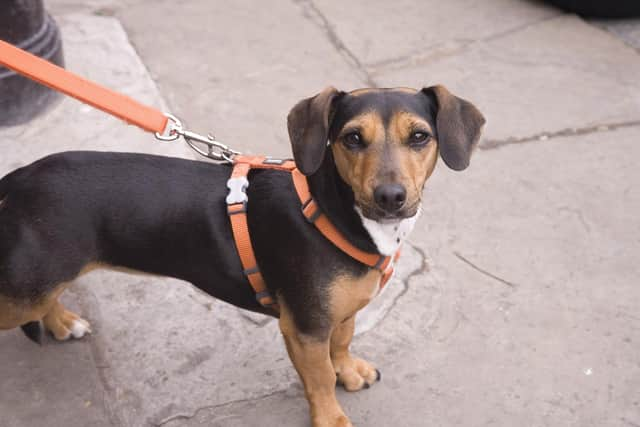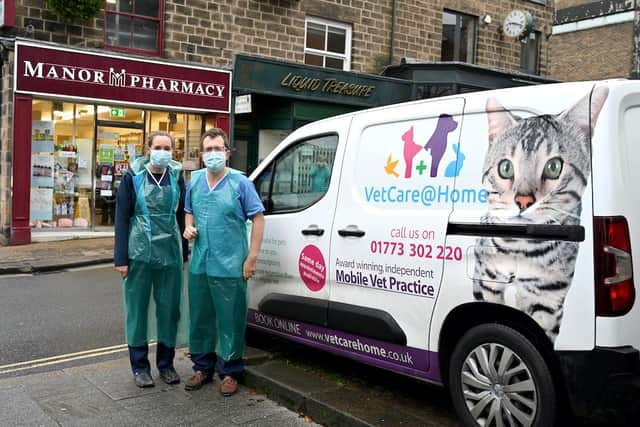Derbyshire vet highlights Covid danger from dog walking
and live on Freeview channel 276
Dr John Rosie, founder and director of VetCare@Home, says dog owners are unwittingly putting others in danger when letting their pets off the lead during the pandemic.
John, whose mobile vet clinics operate from bases in the Belper and the High Peak areas, said many owners were unaware of Government guidelines recommending that dogs should be kept on a lead in areas where other dogs and people might be walking.
Advertisement
Hide AdAdvertisement
Hide AdNot only does this ensure your ability to remain two metres apart from other walkers, but also that the potential danger of transmitting the virus through contact with a dog’s fur is significantly reduced.


Although there is limited evidence that animals can transmit Covid-19 to humans, or vice versa, there is some concern that fur could act as a fomite, or be capable of carrying an infection, and therefore provide a method of transmission if owners and others are stroking their pets.
“Many dog owners are simply not aware of the rules around walking their pets,” said John.
“I would urge all dog owners to make themselves familiar with the Government guidelines, which clearly advise against letting your dog off the lead in public areas.”


Advertisement
Hide AdHe said that many owners incorrectly felt the rule was there to reduce human-to-human contact when dogs ran up to other dogs and needed to be separated.
Advertisement
Hide Ad“But I think the rule is more due to the fomite danger, and is actually there to prevent people touching a dog’s fur,” said John.
Some reports have emerged worldwide of cats and dogs themselves showing symptoms of Covid-19, and John's warning comes as experts from the University of East Anglia, Earlham Institute, and the University of Minnesota wrote in the journal Virulence, that continued evolution of the virus in animals followed by transmission to humans "poses a significant long-term risk to public health".
In comments issued to the press this week, they said: "It is not unthinkable that vaccination of some domesticated animal species might... be necessary to curb the spread of the infection."
Advertisement
Hide AdDespite this, little data exists about the prevalence or level of danger involved, largely due to the fact that animals are not routinely tested.
“There’s a lot of chat in closed industry circles about the need for more testing of pets and other animals,” said John.
Advertisement
Hide Ad“The potential for the virus to survive on fur for any length of time is probably minimal, but without the evidence we need to be safe rather than sorry. And dog owners must always wash their hands after they’ve had contact with a dog.”
Dog owners can find the latest Government guidelines on pet care during the coronavirus pandemic at: https://www.gov.uk/guidance/coronavirus-covid-19-advice-for-people-with-animals#dog-walking
Advertisement
Hide AdIn these confusing and worrying times, local journalism is more vital than ever. Thanks to everyone who helps us ask the questions that matter by taking out a subscription or buying a paper. We stand together. Nancy Fielder, editor.